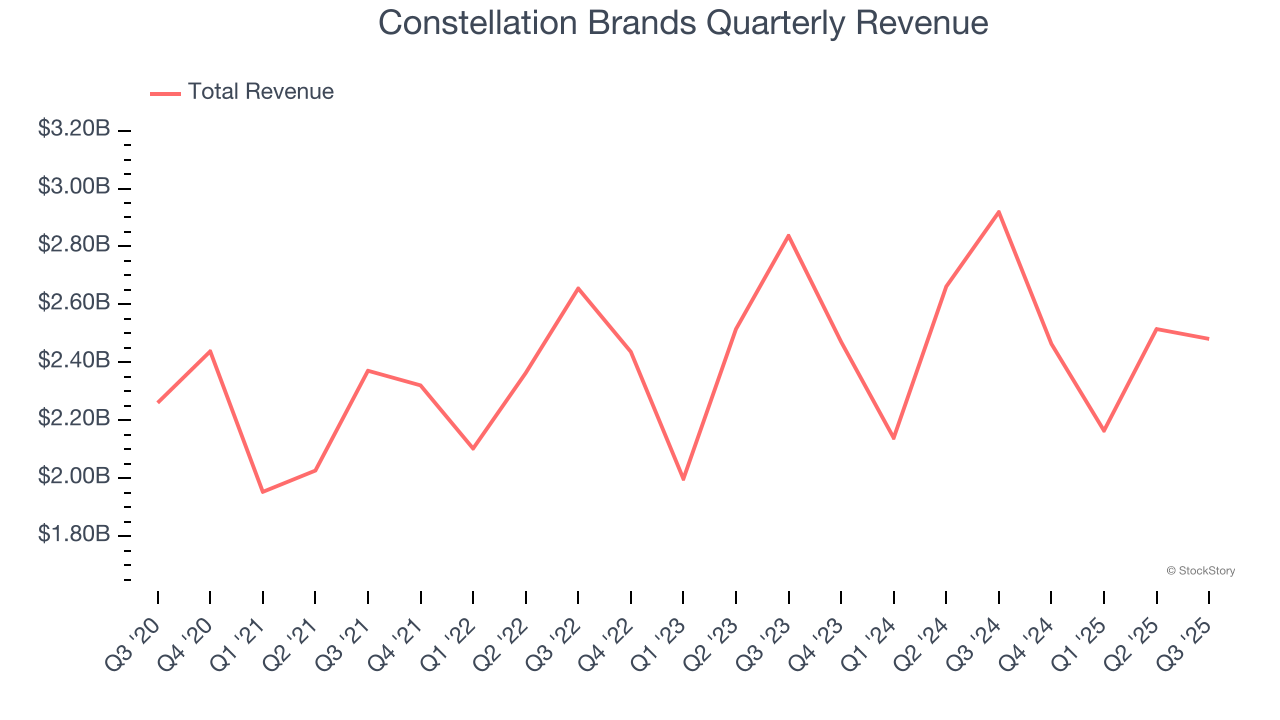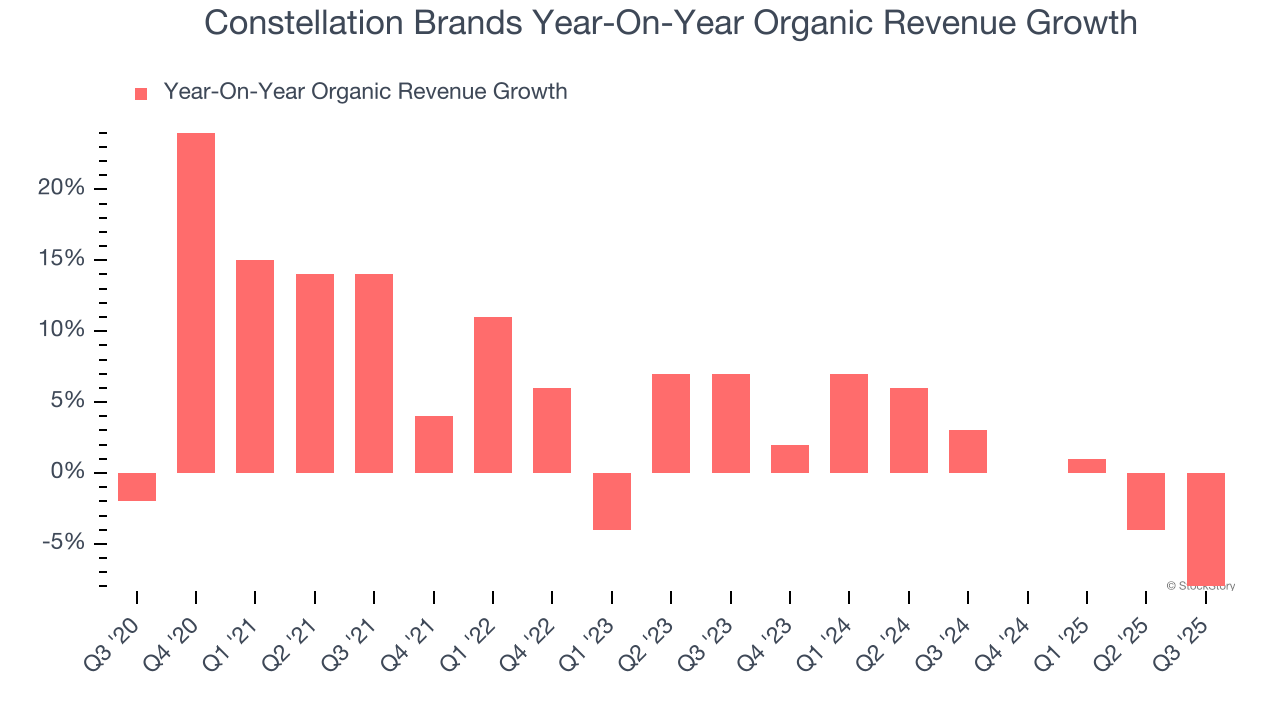
Beer, wine, and spirits company Constellation Brands (NYSE: STZ) reported Q3 CY2025 results exceeding the market’s revenue expectations, but sales fell by 15% year on year to $2.48 billion. Its non-GAAP profit of $3.63 per share was 6.5% above analysts’ consensus estimates.
Is now the time to buy Constellation Brands? Find out by accessing our full research report, it’s free for active Edge members.
Constellation Brands (STZ) Q3 CY2025 Highlights:
- Revenue: $2.48 billion vs analyst estimates of $2.47 billion (15% year-on-year decline, 0.5% beat)
- Adjusted EPS: $3.63 vs analyst estimates of $3.41 (6.5% beat)
- Adjusted EBITDA: $998.8 million vs analyst estimates of $968.2 million (40.3% margin, 3.2% beat)
- Management lowered its full-year organic revenue growth and adjusted EPS guidance
- Operating Margin: 35.2%, up from -42.1% in the same quarter last year
- Free Cash Flow Margin: 25.6%, down from 29.3% in the same quarter last year
- Organic Revenue fell 8% year on year vs analyst estimates of 9.6% declines (155.1 basis point beat)
- Market Capitalization: $25.07 billion
Company Overview
With a presence in more than 100 countries, Constellation Brands (NYSE: STZ) is a globally renowned producer and marketer of beer, wine, and spirits.
Revenue Growth
A company’s long-term sales performance is one signal of its overall quality. Any business can have short-term success, but a top-tier one grows for years.
With $9.62 billion in revenue over the past 12 months, Constellation Brands is one of the larger consumer staples companies and benefits from a well-known brand that influences purchasing decisions. However, its scale is a double-edged sword because there are only so many big store chains to sell into, making it harder to find incremental growth. For Constellation Brands to boost its sales, it likely needs to adjust its prices, launch new offerings, or lean into foreign markets.
As you can see below, Constellation Brands struggled to increase demand as its $9.62 billion of sales for the trailing 12 months was close to its revenue three years ago. This shows demand was soft, a poor baseline for our analysis.

This quarter, Constellation Brands’s revenue fell by 15% year on year to $2.48 billion but beat Wall Street’s estimates by 0.5%.
Looking ahead, sell-side analysts expect revenue to decline by 6.1% over the next 12 months, a deceleration versus the last three years. This projection is underwhelming and implies its products will face some demand challenges.
Unless you’ve been living under a rock, it should be obvious by now that generative AI is going to have a huge impact on how large corporations do business. While Nvidia and AMD are trading close to all-time highs, we prefer a lesser-known (but still profitable) stock benefiting from the rise of AI. Click here to access our free report one of our favorites growth stories.
Organic Revenue Growth
When analyzing revenue growth, we care most about organic revenue growth. This metric captures a business’s performance excluding one-time events such as mergers, acquisitions, and divestitures as well as foreign currency fluctuations.
The demand for Constellation Brands’s products has barely risen over the last eight quarters. On average, the company’s organic sales have been flat. 
In the latest quarter, Constellation Brands’s organic sales fell by 8% year on year. This decline was a reversal from its historical levels. We’ll keep a close eye on the company to see if this turns into a longer-term trend.
Key Takeaways from Constellation Brands’s Q3 Results
It was encouraging to see Constellation Brands beat analysts’ organic revenue and EPS expectations this quarter. On the other hand, full-year organic revenue and EPS guidance was lowered. Still, the market seemed to forgive the guidance and instead focus on the beats in the quarter. The stock traded up 3.8% to $144.01 immediately after reporting.
So should you invest in Constellation Brands right now? The latest quarter does matter, but not nearly as much as longer-term fundamentals and valuation, when deciding if the stock is a buy. We cover that in our actionable full research report which you can read here, it’s free for active Edge members.





